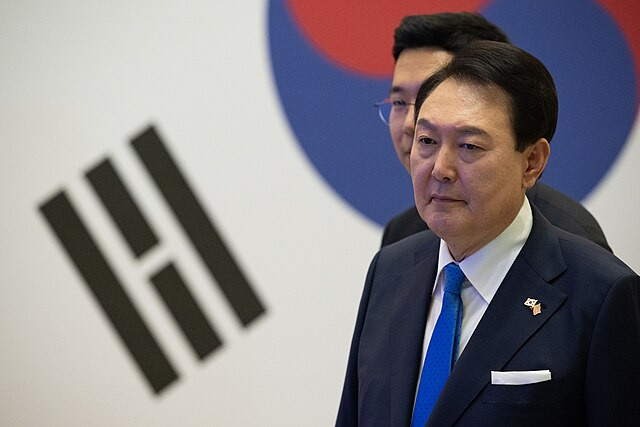The political turmoil surrounding impeached South Korean President Yoon Suk Yeol escalated over the weekend as authorities faced mounting challenges in executing a detention warrant against the embattled leader. With the warrant set to expire at midnight Monday, the crisis has ignited protests, legal disputes, and a tense standoff involving the presidential security service.
Hundreds of demonstrators braved freezing temperatures and heavy snowfall near Yoon's official residence in Seoul, demanding his arrest. Simultaneously, pro-Yoon supporters rallied nearby, vowing to shield him from detention. Police barricades and buses separated the opposing groups as tensions simmered.
Yoon, accused of rebellion following his controversial December 3 martial law decree, has been impeached by parliament and suspended from his official duties. The Corruption Investigation Office for High-Ranking Officials (CIO) issued a detention warrant last week, citing the martial law declaration as an unconstitutional attempt to undermine the legislative body.
The warrant was met with resistance on Friday when investigators and police attempted to detain Yoon at his residence. In a six-hour standoff, the presidential security service, reinforced by military personnel, blocked access to the compound. The confrontation has drawn criticism from opposition leaders and legal experts, who argue that the security service's actions amount to obstruction of justice.
Park Jong-joon, chief of the presidential security service, defended his team's actions. The presidential security service has historically provided security to all presidents for six decades, irrespective of their political affiliation, Park Jong-joon noted in a statement on Sunday. Park dismissed accusations that his organization has become Yoon's "private army" and reiterated its legal obligation to protect the incumbent president.
However, critics argue that the security service's mandate does not extend to shielding the president from lawful detention. Criminal law attorney Park Sung-bae pointed out that the presidential security act does not grant the service the authority to obstruct court-ordered detainments.
As the detention deadline looms, Acting President Choi Sang-mok has remained silent on whether he will order the security service to comply with the warrant. The CIO has repeatedly called on Choi to intervene, emphasizing the importance of upholding the rule of law.
Protests have intensified amid the deadlock. Yang Kyung-soo, leader of the Korean Confederation of Trade Unions, addressed anti-Yoon demonstrators over the weekend. "We must bring down the criminal Yoon Suk Yeol and arrest him as soon as possible," Yang declared.
Nearby, Yoon supporters carried placards reading "We will fight for President Yoon Suk Yeol" and "Stop the Steal," echoing rhetoric used by U.S. President-elect Donald Trump's supporters following his 2020 election loss.
Legal experts are divided on the validity of the detention warrant. Yoon's legal team has filed complaints against the CIO, alleging that the agency lacks authority to investigate charges of rebellion. They argue that the residence's status as a potential military site requires the consent of its occupant for searches or arrests.






